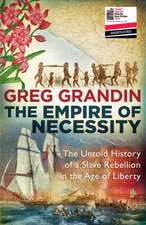A Decent Provision: Australian Welfare Policy, 1870 to 1949
Autor John Murphyen Limba Engleză Hardback – 28 mar 2011
| Toate formatele și edițiile | Preț | Express |
|---|---|---|
| Paperback (1) | 469.34 lei 6-8 săpt. | |
| Taylor & Francis – 17 noi 2016 | 469.34 lei 6-8 săpt. | |
| Hardback (1) | 1061.81 lei 6-8 săpt. | |
| Taylor & Francis – 28 mar 2011 | 1061.81 lei 6-8 săpt. |
Preț: 1061.81 lei
Preț vechi: 1294.89 lei
-18% Nou
Puncte Express: 1593
Preț estimativ în valută:
203.20€ • 209.64$ • 171.98£
203.20€ • 209.64$ • 171.98£
Carte tipărită la comandă
Livrare economică 05-19 martie
Preluare comenzi: 021 569.72.76
Specificații
ISBN-13: 9781409407591
ISBN-10: 1409407594
Pagini: 294
Dimensiuni: 156 x 234 x 18 mm
Greutate: 0.66 kg
Ediția:1
Editura: Taylor & Francis
Colecția Routledge
Locul publicării:Oxford, United Kingdom
ISBN-10: 1409407594
Pagini: 294
Dimensiuni: 156 x 234 x 18 mm
Greutate: 0.66 kg
Ediția:1
Editura: Taylor & Francis
Colecția Routledge
Locul publicării:Oxford, United Kingdom
Cuprins
Contents: Introduction; The pauper in the New World: on not having a Poor Law; The mixed economy of colonial welfare: faith, self-help and charity; The veterans of labour: old age pensions; The Commonwealth laboratory; 'The duty of a nation': a parallel welfare state for veterans; The failures of the 1920s: maternalism and national insurance; The Depression; National insurance, 1938-1939; Unfinished business: Labor's welfare state, 1941-1949; Conclusion; Appendix; Bibliography; Index.
Notă biografică
Associate Professor John Murphy, School of Historical and Philosophical Studies, The University of Melbourne, Australia
Recenzii
'What could have been a book solely for a narrow audience of specialist historians and policy wonks, actually makes for engaging reading for anyone with an interest in the development of the Australian nation.' Australian Policy Online ’It is to be hoped that A Decent Provision makes its way speedily into teaching and research, and indeed policy-making.’ EH.NET 'This is an excellent narrative history of the development and implementation of Australian welfare policy from the late-nineteenth to the mid-twentieth century... This will be a valuable resource for students and scholars of Australian social policy as well as others interested in transnational developments during the period.' Australian Journal of Politics and History 'This book succeeds admirably as a work of synthesis that also draws importantly on primary documentation to tell a story of Australian experience to a wider world audience.' Australian Historical Studies 'For non-Australian readers, in particular, the second significant benefit of this excellent investigation of Australian welfare policy during the colonial period and the first half-century after Federation is the comparative perspective it affords.' Labour History Review '... Murphy has made a welcome contribution to the literature on the welfare state. He reveals the importance of Australia’s unique experience with social policy and provides a meaningful case-study of more wide-ranging trends within welfare legislation and practices.' English Historical Review 'This is an impressive book. It is both an excellent history of the Australian welfare system and an insightful reflection on the relation between that history and the welfare system today. It is a book that you recognize has been written by an expert in the field - presenting its description of the main contours of history and bringing out its main themes with a clarity that can only come from detailed research and extensive thinking.' Enterprise and Society '... extreme
Descriere
This book is a narrative history of how and why Australia built a distinctive welfare regime, from the late 19th century to the mid-20th century. It places the development of a welfare state in the 1940s in the context of what had gone before, showing that choices made in earlier decades constrained and still constrain what could then, and can now be imagined. It discusses the pre-history of a welfare system, and how Australia went from being a social laboratory at the start of the twentieth century to a 'welfare laggard' by mid-century.







